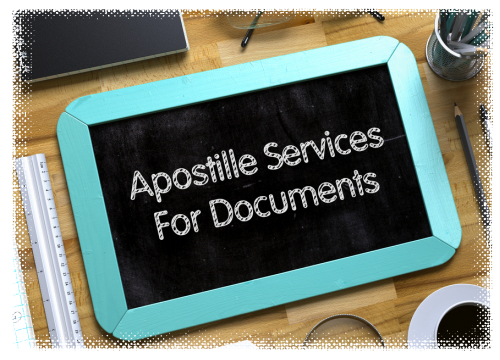Houston Apostille Specialists: Your Best Legalization Option
Digging Into the Reasons Behind the Required Requirement of Apostille Accreditation for Legal Documents
In the realm of legal paperwork, the obligatory demand of apostille qualification has come to be an important aspect that significantly impacts the legitimacy and recognition of legal documents on a global range. Comprehending the rationale behind this requirement involves diving into the complex internet of lawful intricacies, historical criteria, and worldwide agreements that underscore the importance of apostille accreditation in today's interconnected world. By discovering the underlying factors behind this prevalent demand, a more clear image arises of why this seemingly governmental procedure holds such tremendous significance for people, companies, and federal governments alike.
Historic Advancement of Apostille Certification
Just how did the principle of apostille qualification evolve over time to come to be a vital part of international paper recognition? The historical evolution of apostille accreditation go back to the very early 20th century. The demand for a simplified technique of confirming files for usage across boundaries emerged as international profession and traveling enhanced. In feedback to this demand, the Hague Conference on Personal International Legislation introduced the Apostille Convention in 1961. This global treaty established a streamlined procedure for licensing the credibility of documents to be identified in member nations.
At first embraced by a few European nations, the Apostille Convention slowly obtained worldwide approval due to its performance and effectiveness in verifying the legitimacy of main documents. Throughout the years, the convention's reach broadened as even more nations signed up with, acknowledging the apostille as a widely accepted type of record verification. Today, apostille accreditation has become a basic demand for confirming lawful papers in international purchases, making sure smooth interaction and legal procedures between countries.
Simplifying International Record Legalization
The streamlining of worldwide record legalization procedures has considerably enhanced efficiency in cross-border deals. Simplifying the procedure of legalizing papers for international use has actually come to be important in facilitating swift and smooth purchases between nations. One of the vital mechanisms that have actually added to this simplification is the adoption of the Apostille Convention, which gives a standard method for verifying the authenticity of documents throughout taking part nations.
By adhering to the Apostille requirements, nations consent to acknowledge each other's public documents as valid without the demand for more legalization. This removes the lengthy and typically difficult procedure of multiple verifications by various authorities, conserving time and sources for people and businesses taken part in worldwide tasks.

Making Certain File Credibility and Validity
To guarantee the authenticity and validity of lawful documents in worldwide deals, strict confirmation processes are important. By requiring apostille certification for lawful papers, authorities aim to verify the origin of documents and confirm the signatures of individuals involved.
Furthermore, verifying the authenticity of lawful files via apostille certification boosts depend on and confidence amongst celebrations participating in global deals. It provides assurance that the records offered are authentic and legally binding, therefore minimizing the risks linked with deceitful activities. In addition, guaranteeing paper credibility with apostille certification simplifies the legalization procedure, making it more reliable and efficient for individuals and organizations performing service across borders. Eventually, by maintaining strict verification requirements, apostille accreditation adds to a much more transparent and safe international legal framework.

Promoting Cross-Border Legal Acknowledgment
In the world of global deals, the apostille accreditation not only ensures the authenticity and legitimacy of lawful papers however also plays a pivotal duty in promoting cross-border lawful recognition (Houston Apostille). When legal documents birth an apostille certificate, they are readily approved by foreign authorities without the need for more verification. This structured procedure speeds up the recognition of records in different countries, advertising effectiveness and reducing governmental obstacles in legal issues that transcend nationwide limits
Assisting in cross-border lawful recognition with apostille qualification fosters depend on and self-confidence in the authenticity of files traded in between nations. By adhering to the requirements established forth by the Apostille Convention, countries concur to recognize the apostille seals affixed to files from various other participant nations, thus simplifying the procedure of lawful acknowledgment throughout boundaries.
Compliance With International Treaty Criteria
Compliance with international treaty standards is essential for ensuring the consistent application of lawful guidelines across participating countries. The Apostille Convention, developed in 1961, details the demands for the acceptance of public records amongst member countries.
The Apostille qualification, as mandated by the treaty, offers as a guarantee of authenticity for records such as birth site link certificates, marriage licenses, court judgments, and notarized acts. This standard method helps protect against scams and guarantees that lawful documents originating from one participant country are readily approved in another. Moreover, by abiding by worldwide treaty standards, countries demonstrate their dedication to supporting the concepts of transparency, trust fund, and teamwork in legal issues on a global range.
Conclusion

In the world of lawful documentation, the compulsory requirement of apostille certification has actually come to be an important element that dramatically More Bonuses impacts the credibility more tips here and acknowledgment of lawful documents on an international scale. Today, apostille accreditation has actually come to be a basic demand for verifying lawful documents in global transactions, guaranteeing smooth communication and legal procedures in between countries.
In addition, validating the authenticity of legal documents through apostille accreditation improves depend on and self-confidence among celebrations involving in worldwide deals.In the realm of worldwide deals, the apostille accreditation not only guarantees the authenticity and credibility of legal files but also plays a pivotal role in facilitating cross-border legal acknowledgment. By sticking to the requirements established forth by the Apostille Convention, countries concur to honor the apostille seals attached to files from other participant nations, therefore simplifying the process of lawful acknowledgment across borders.